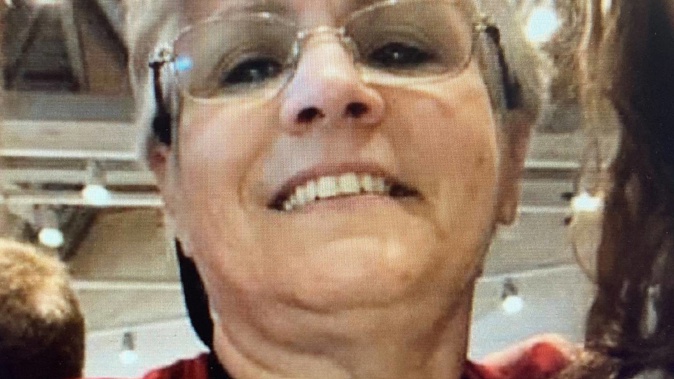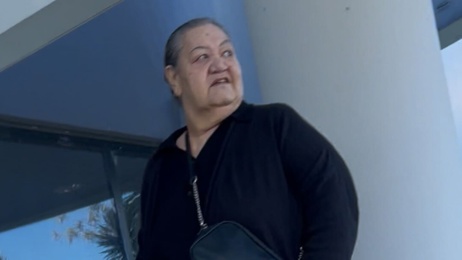
A former senior hospital worker who has been fighting her former employer must now find almost $49,000 to pay for some of their legal costs.
But Ana Shaw, described as having "strained financial means", says she still intends to take her case to the Supreme Court.
Shaw was a cardiac physiologist at Tauranga Hospital before she was sacked for serious misconduct, namely that she collected and kept patient information. Shaw said she had done this to prove she was bullied and undermined at work.
She was unsuccessful in pursuing two personal grievances against the Bay of Plenty DHB. She alleged that she had suffered an unjustified disadvantage and had been unjustifiably dismissed. The Employment Relations Authority dismissed those claims.
/cloudfront-ap-southeast-2.images.arcpublishing.com/nzme/6HB7R3Q5VAUEYJ2X2QLE2IRASI.jpg)
A worker sacked from Tauranga Hospital has been hit with a $49,000 legal costs bill. Photo / NZME
She unsuccessfully challenged both determinations in the Employment Court, which reserved costs, but the parties had been unable to agree and the DHB then applied for a costs order.
Last month the Court of Appeal turned down Shaw's bid to appeal the Court's decision. It said her request for an appeal did not raise any arguable question of law, let alone one that was of general and public importance as to warrant an appeal.
Shaw told Open Justice then that she intended to take the matter to the Supreme Court. Today, she reiterated that stance.
The figure awarded was not as high as what the DHB had claimed. It sought an uplift of a further $7000 on top of the standard $8000 tariff for a two-day investigation, for a list of reasons claimed by the DHB. They included actions on the part of one of those (other than her lawyer) representing Shaw, which caused the DHB to have to seek intervention from the authority.
The DHB also sought almost $44,000 in costs for the Employment Court proceeding, with an uplift of a further $22,654 which it felt was justified for a "walk-away offer" it had made to Shaw.
A "without prejudice" settlement offer was made in March 2019, in exchange for discontinuing the proceeding, at which point no costs would be sought.
Judge Kerry Smith said in his decision that while the DHB was entitled to costs, he was not satisfied that the claimed uplifts were appropriate.
"As to the authority, it would appear that the Court is being asked to award an amount that would indemnify the DHB, but that request is not supported by the matters relied on in submissions."
Shaw was opposed to any costs being awarded. Her lawyer submitted that such an outcome would be just in the circumstances, taking into account various circumstances including her financial position, the "chilling effect" on access to justice of the costs award sought; and the effect of the dismissal on Shaw.
Shaw, who now worked in retail, provided a 10-sentence affidavit as evidence of her financial situation that she described as strained.
She stated her only assets were household effects and a car of limited value. She had no savings or funds available to meet a costs order, and also had a substantial credit card debt.
Judge Smith said that despite criticism of the adequacy of Shaw's disclosures about her financial position, he accepted her evidence that she presently had limited means.
"However, by itself that is not a sufficient reason to justify declining to make any costs order or, for that matter, reducing the amount that might otherwise be payable."
He also said submissions about access to justice, and concerns about a "chilling effect on potential litigants", were not borne out by what actually happened in this case.
Judge Smith said the issue around costs had been discussed with the parties early on.
He added that the submission inviting the Court to decline costs to the DHB risked diminishing the impact of litigation on it. The DHB was a publicly funded health-service provider, and there was therefore no reason why that public funding should bear the full burden of this litigation.
/cloudfront-ap-southeast-2.images.arcpublishing.com/nzme/JVGCS3GXMYNPEMPTEZ7VCQOTL4.jpg)
A woman who fought being sacked from her role at Tauranga Hospital has been hit with a hefty legal costs bill. Photo / NZME
Judge Smith said the DHB was entitled to make a claim for its wasted costs in relation to a hearing which was adjourned earlier on, but they were not separately itemised in submissions. He said a 10 per cent uplift would reflect the "wasted expense" of counsel's time in preparing for the hearing that had to be repeated, after an adjournment in September 2020.
"The request to adjourn was made on the basis that her representative was required to give evidence which only become apparent when briefs of evidence for the DHB were reviewed.
"In the end he did not provide a brief of evidence or give evidence at the hearing. In granting the adjournment I noted that her case had all the hallmarks of being underprepared."
Judge Smith said a 10 per cent uplift would reflect that wasted expense, which brought the amount to order for costs of the Court proceeding to $39,960.
Shaw was also ordered to pay $8000 in costs to the DHB for the proceedings before the and $1000 in costs arising from preparing the application.
- Tracy Neal, Open Justice
Take your Radio, Podcasts and Music with you









